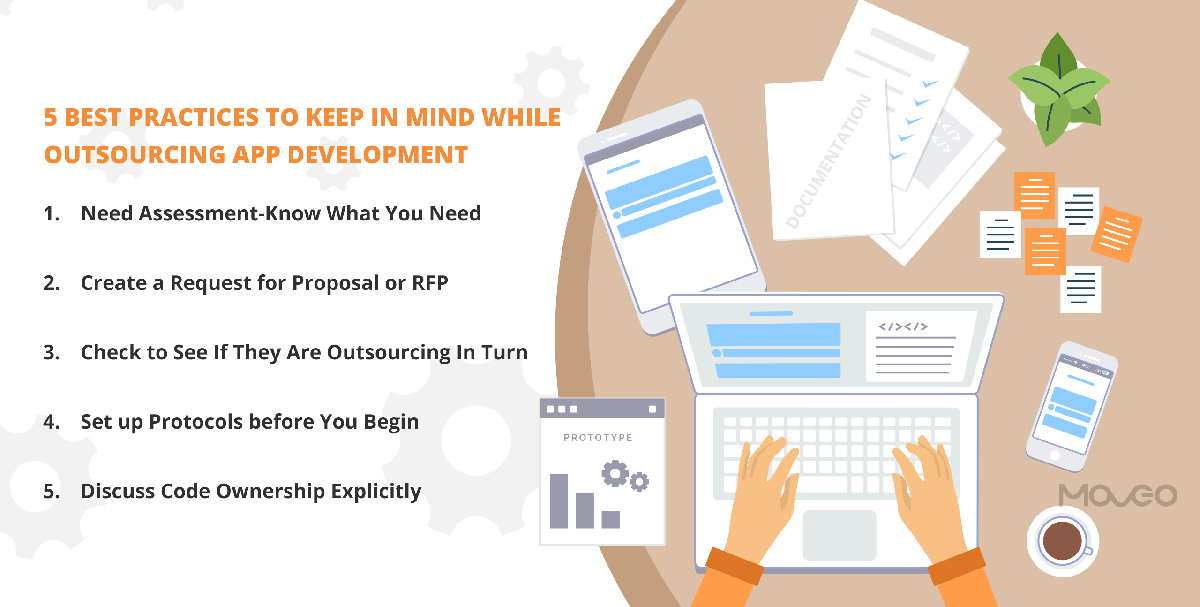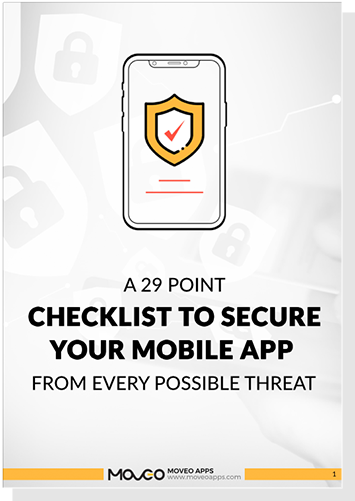If your business needs an app, and it does, you are probably considering outsourcing the app’s development. Unless you are a pro-coder yourself and actually have the time to develop your own app from scratch, you are going to need help from an app development company or at least a freelance developer. So how do you find the right people whom you can entrust the responsibility with, and how exactly do you control the development while giving them creative freedom, are a few questions you’ll need to answer before you dive into the actual development process. Here’s a step-by-step route map to help you course through, and make sure you don’t miss any important details:
1. Needs Assessment – Know What You Need
Choosing the right developers for your app will require a good deal of searching and analyzing. You will go through the phase of interviewing developers, comparing and wondering who the right fit is.
The first step is to know what you want from the developer, and for that, you need to perform a needs assessment. You need to have as detailed a plan as possible at this stage, answering key questions like,
- What you want the app to do
- What features does it need to have
- How soon you hope to launch it
- Do you want social media integration
- Is there a payment gateway
- And many more
Having answered all these questions, you will have a better idea of all the qualities you want in your developer. This will make shopping around and interviewing developers a lot more effective.
2. Create a Request for Proposal or RFP
You will probably start off on the internet, as we all do now. So to attract proposals from only the best app development companies, craft a very detailed and specific Request for Proposal. A generic RFP attracts generic freelance developers who are primarily competing on price to offer you app development on the lowest price possible. If that turns out to be your judging factor, you will end up with a cookie-cutter product. So design your RFP to strategically ward off such proposals and only attract truly skilled and experienced talent.
Here are a few best practices to craft a good RFP:
Be very specific
Go on, be picky. Say you are looking for developers experienced in iOS development only, if that’s what you want. Say you want developers with experience in gaming apps or e-commerce apps in particular. The idea is to set the expectations clear from the start, and not spend time weeding out proposals that don’t quite fit.
Create developer profiles
Your app is going to be the face of your business, so its developers must thoroughly understand the kind of vibe and personality you are trying to send across. You need a very specific kind of developer, who can translate your brand into an app, and not create his/her dream app. So create a developer profile that clearly describes the kind of developer you are looking to hire.
Encourage dialogue
You should try to create an RFP that will encourage developers to begin a conversation. If they ask you further questions about your expectations and propose ways they plan to execute them, you are onto something.
3. Check to See If They Are Outsourcing In Turn
There are app development companies that will take a contract from you and then outsource the development or parts of it to yet another company. In some cases you may not mind this but in others you will. Either way, this is something you must clear up in the very beginning. In addition to telling you how this is going to work, you’ll also be able to test the company’s transparency.
Ideally, you want to make sure that the company works on the app themselves, and stays in continuous communication with you.
4. Set up Protocols before You Begin
A good app is a collaborative effort, between designers, developers and stakeholders. While you need to ensure that the app follows brand guidelines as well as see to it that it lives up to your vision, you also need to give developers adequate space and creative freedom to try new technologies and develop a standout app.
To accomplish this delicate balance, it is crucial to set up some basic rules and protocols, like how much the developers can experiment, how often they need to communicate and who has the last word.
5. Discuss Code Ownership Explicitly
Make no bones about this one – code ownership is the most important part of your contract in the long term. If you are explicitly intent on owning the code, state that before you begin anything. If you like a development company but they wish to own the code; it will mean that you will have to rely on this company alone, for all your updates and maintenance in the future. In legal discourse, there are different rights given to the authors of code, and to the clients in case of work-for-hire. In case of a conflict, it is the contract that reigns supreme, so what you document in the contract will dictate who owns the code.
Conclusion
Remember that outsourcing your app development to a company marks the start of a long term business relationship, which must be transparent, trustful and symbiotic. Who you choose and how you work with them will determine how well your app performs and how much engagement and revenue it drives.
The above best practices will help you choose the best app development company and lead the way as these professionals turn your vision into a reality. Now, if you’re looking to build an app for your business, we’d be happy to answer all the questions popping in your head right now. Should you insist on code ownership, or let the development company own it? It depends, really. So drop us a line and let’s discuss your idea.



Thanks for the wonderful Article